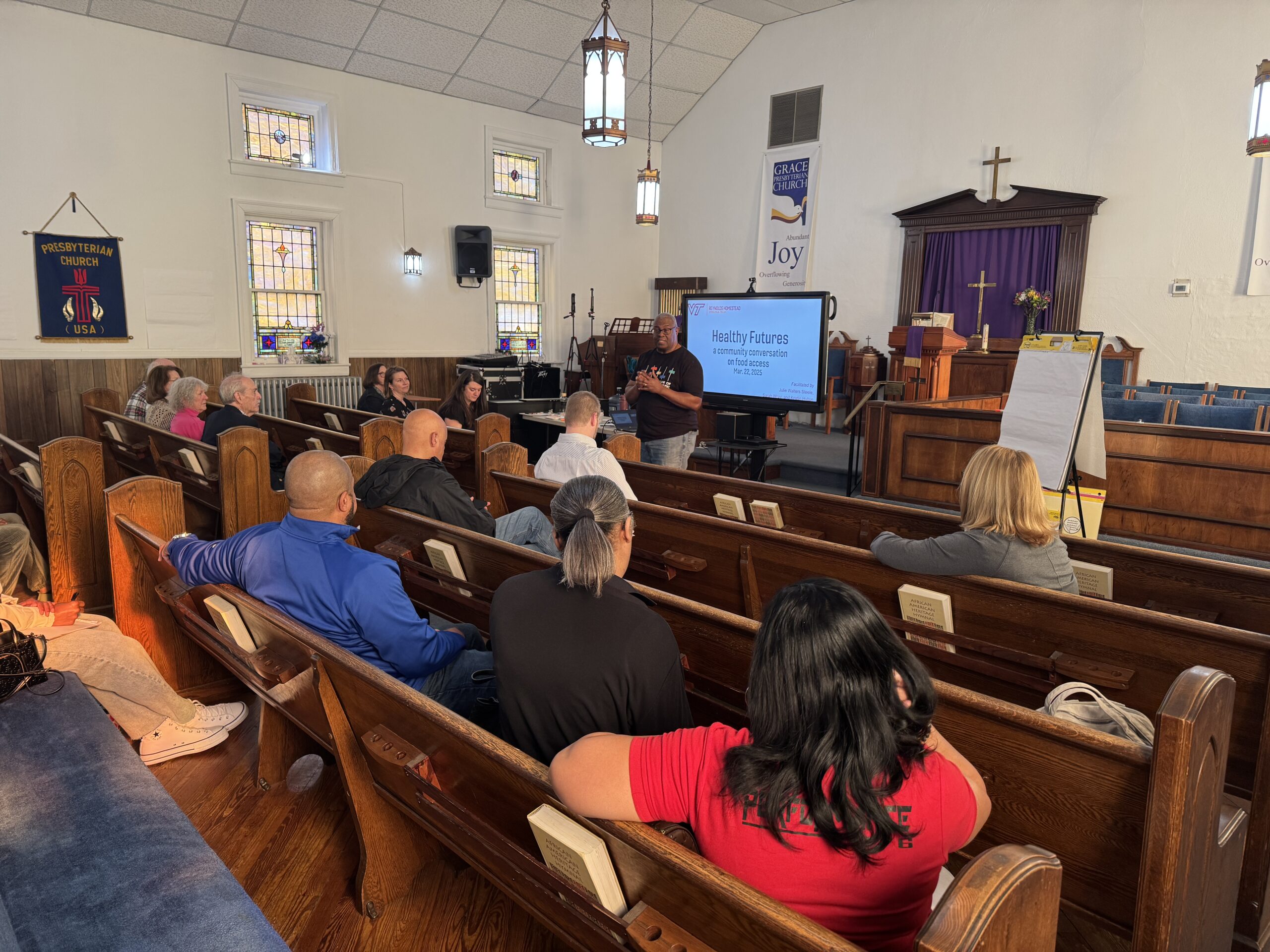Potential solutions and partners for food access discussed during Saturday’s meeting
Martinsville, Va. — Around 20 people gathered this past Saturday at Grace Presbyterian Church on Fayette Street in Uptown Martinsville to discuss food access and food insecurity following the recent closure of Family Dollar, formerly located at the Central Plaza on Memorial Boulevard.
“This is just a conversation to identify the gaps with Food Insecurity in our community and how we can better serve children and families who are experiencing this problem,” said Rev. Kelvin G. Perry, pastor of Grace Presbyterian Church. “We want to identify those missing gaps and opportunities for subsequent meetings to talk about how we can address this very serious issue within our immediate community and the community as a whole to ensure that people have access to quality choices for food.”
The conversation titled Healthy Futures: A Community Conversation on Food Access, facilitated by Julie Walters Steele, Sarah Wray, and Kristin Hylton of Reynolds Homestead in Critz, Va., focused on guiding questions to identify and define the challenge of food access, explore existing resources, prioritize and activate, and recap and debrief from the day.
Participants created a list of those they felt were most impacted throughout the community by food insecurity which included individuals on limited and fixed incomes, the elderly, children, and individuals with no transportation. The group put together a listing of existing resources and discussed when this became an issue in Martinsville-Henry County. Answers ranged from it’s always been an issue, to the pandemic increasing awareness of the issue, and food insecurity becoming more prevalent following the closure of Family Dollar.
Jean Hairston, a retired educator and elder of Grace Presbyterian Church, said it’s great that Martinsville-Henry County has many programs for food access, but they still are out of reach for the area’s most vulnerable populations.
“All organizations aren’t able to provide for everyone in need,” she said. “If you don’t have a car or if you can’t get on the bus, you have to find a ride or you’re in trouble. From Fayette Street to (US N) 220, there are only two stores that residents can go to if they have transportation — Walmart and Kroger. This doesn’t mean that we don’t need the support organizations because we do, it means that (they alone) will not solve the food desert issue.”
Facilitators broke participants up into small groups to brainstorm and build on ideas from existing or new resources. LaDonna Hairston, co-owner of Performance 276, said as a mental health professional, she sees other barriers that some residents don’t experience.
“Language is one key barrier,” she said. “I’m seeing more of a Latin(x) population, especially in the West End. And during my time as a mental health professional, if someone is having a mental health crisis, they aren’t able to communicate their needs or even know when they need help.”
Barriers to accessing information online for non-computer or non-social media users were mentioned, in addition to barriers around individuals who may not have electricity at their homes or working appliances if they do receive assistance from monthly food distributions.
Potential ideas during the brainstorming session included increased communication among service providers, year-round farmer’s markets, increased community gardens, bringing in another store that provides groceries to the West End community, and taking more of a door-to-door approach in building trust to let residents know about opportunities around food access.
“Addressing food insecurity in the West End — and across our entire community — will take all of us working together,” Perry said following Saturday’s meeting. “I hope this marks the beginning of an ongoing, community-wide conversation that brings forward a variety of solutions to meet the diverse needs of those affected. There’s no one-size-fits-all answer when it comes to food access—it’s a complex issue. I encourage everyone to be part of the dialogue and share ideas that can help increase access to healthy, affordable food for all.”
The facilitators plan to release a report of Saturday’s meeting. If you want to get involved, email gracepc@gracechurchmartinsville.org or call (276) 632-5783.



